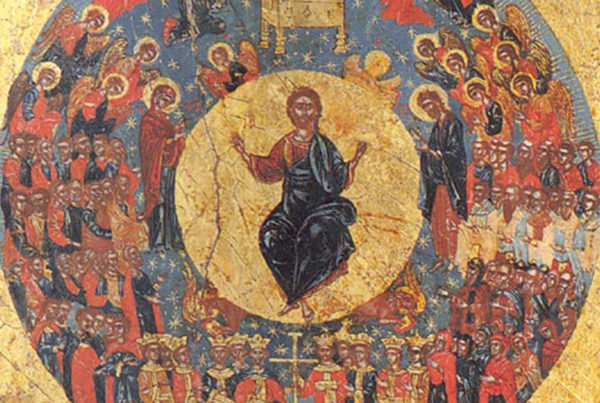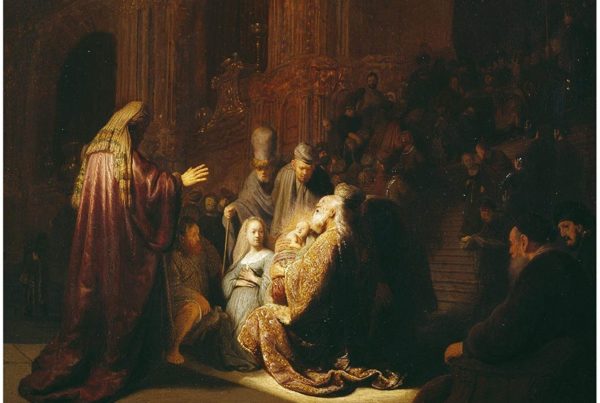In the last post we saw that the Principle of Redemptive Withdrawal (PRW), that is, divinely ordained cause-and-effect, is not the only way to explain the violence we see depicted throughout the Old Testament. There are other factors at work. Surely one of them, according to Greg Boyd, is the reality of untamed natural forces and/or the specifically demonic. This he refers to as the Principle of Cosmic Conflict (PCC). These forces are, in their essence, “bent on destruction.” When God pulls back his staying hand, hell is unleashed.
With these two hermeneutical principles in place, have we therefore accounted for all the violence? According to Boyd, not yet. Still to be accounted for is the reality that God’s people sometimes sometimes use divine power in ways that do not reflect the character of God that we see revealed in Jesus Christ, Crucified.
A good example of this comes from the book of 2 Kings chapter 2:
From there Elisha went up to Bethel. As he was walking along the road, some boys came out of the town and jeered at him. “Get out of here, baldy!” they said. “Get out of here, baldy!” He turned around, looked at them and called down a curse on them in the name of the Lord. Then two bears came out of the woods and mauled forty-two of the boys. And he went on to Mount Carmel and from there returned to Samaria. (vv. 23-25).
Surely the Spirit of the One who commanded us to turn the other cheek and who embodied his own commandment on the Cross is not inspiring this activity of the great prophet Elisha, right? It’s hard to imagine Jesus patting Elisha on the back for this one. And yet–and here’s the important point–the power present in Elisha to call down this curse is divine power, according to the text of Scripture, and God honors it.
What is going on here? Boyd introduces here to his fourth principle: The Principle of Semi-Autonomous Power (PSP):
When God confers divine power on select people, he does not meticulously control how they use it (p. 1196).
He elaborates:
More specifically…when God gives someone divine power, he genuinely gives it to them. To one degree or another, he places his divine power under the control of their own power. I refer to this as semi-autonomous power because, while the power itself does not exist independently of God, the way it is used is, to one degree or another, up to the agent it is given to, not God (Ibid.).
God, according to Boyd, grants human agents genuine say-so over the power he gives to them, and this power, even when misused, remains supernatural.
This is confirmed in the New Testament and grounded explicitly in the Gospel writers’ witness to Jesus. When Paul confronts the Corinthian believers (1 Cor 12-14) for their misuse of their spiritual gifts, the presupposition is that the power is supernatural, it is genuinely given to them, and is capable of being mishandled. The whole logic of the admonition depends upon that presupposition. “The spirits of prophets are subject to the control of prophets” (1 Cor 14:32); that is to say, “You have a decision about how your God-granted supernatural power will be used. So use it in ways that reflect God’s character.” That is, use your gifts in love.
In the ministry of Jesus, of course, we see this principle in sharp relief. One of the places where it comes out most clearly is in the Garden of Gethsemane, when one of Jesus’ companions tried to prevent his arrest:
“Put your sword back in its place,” Jesus said to him, “for all who draw the sword will die by the sword. Do you think I cannot call on my Father, and he will at once put at my disposal more than twelve legions of angels? But how then would the Scriptures be fulfilled that say it must happen in this way?” (vv 52-54).
However we understand the notion of Jesus’ sinlessness (and let us be clear: it is crucial that he remain sinless to be our Savior), the Gospel writers make it abundantly plain that here, as at so many other points in Jesus’ ministry, he could have used his power in ways that were contrary to the will of his Father. The assumption, of course, is that his Father would have honored that misuse. Fortunately for us, Jesus submitted his power to his Father’s will. And so we are saved.
According to Boyd, concepts like these–that power, including and perhaps especially divine power, could be given but not meticulously controlled–are difficult for modern people to appreciate; but for the ancients, it was no trouble at all. He notes that in the ancient world
names and words were conceived of as real and semiautonomous extensions of the person who is named or the speaker of the words. Hence, once spoken, oaths, promises, blessings, and curses were believed to take on a life of their own and thus could not be retracted by humans. This is why, for example, Isaac was not able to retract or nullify the blessing he had mistakenly given to Jacob (Gen 27:33-37). This also explains why Saul is depicted as incurring God’s wrath for breaking a vow made by the Israelites to the Gibeonites four hundred years earlier (2 Sam 21:1-2), despite the fact that the Israelites had been tricked into making this vow (Josh 9:1-14). (p. 1199)
To boil it down to its simplest, and to reiterate: power conferred by God is real power, and it is really “conferred”–for good or for ill.
This is why:
- Moses could misuse his staff and God still honored it (Num 20:11)
- Elijah could call fire down on the messengers of Ahaziah, even though it was clear he was acting out of fear, and God still honored it (2 Kings 1)
- Elisha could follow up a genuine healing miracle at Jericho with a spiteful display of vengeful rage, and God still honored it (2 Kings 2:19-25)
- Samson could act like “an utterly selfish and unscrupulous adventurer” (Boyd quoting Frazer, p. 1230), and, still, his God-given strength was honored
And so forth. The important point to note, once again, is that the power being honored did not mean that God was pleased with the activity. A clear example of this would be Jesus’ rebuke of his disciples when they sought to replicate Elijah’s “miracle” of fire falling down from heaven on those who rejected them (Luke 9:54-55). Despite God’s honoring of Elijah’s power, Jesus and his disciples will embody a better way: not destroying people’s lives with power, but saving them.
Jesus, of course, is the exemplar here. Perfectly submitting his agency, his power, to the will of his Father, choosing to die for his enemies rather than kill them, Jesus took upon himself not only the sin of his enemies, but even and also the sin of his people, past, present, and future, many of whom misused their God-given supernatural authority. In so doing, he restored us to the Father, and showed us a better way.
And with that, Boyd’s four cruciform hermeneutical principles are set out. In the next post, I’ll give some reflection on what I personally think about all of this.



